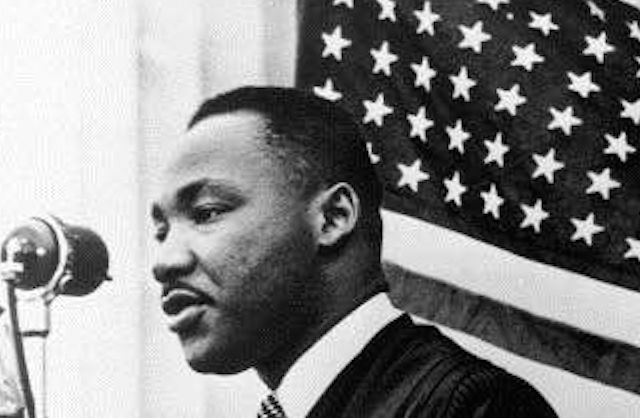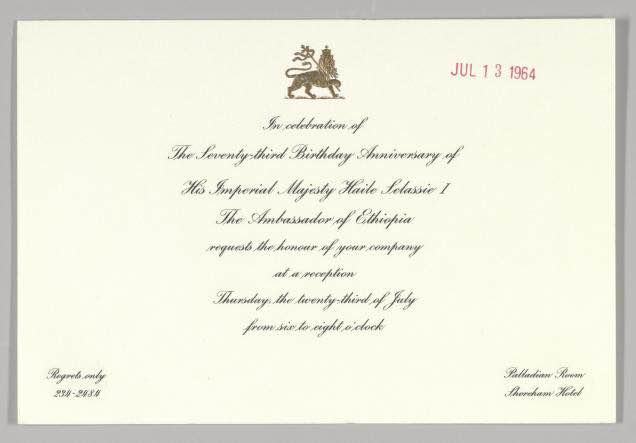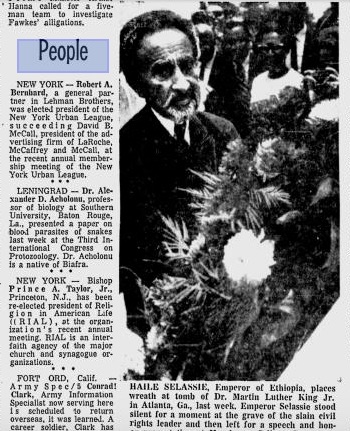 Martin Luther King, Jr. (photo courtesy uscitizenpod.com)
Martin Luther King, Jr. (photo courtesy uscitizenpod.com)
Tadias Magazine
By Tadias Staff
Published: Monday, January 18th, 2016
New York (TADIAS) — A few months before he was awarded the Nobel Peace Prize in 1964, Martin Luther King Jr received a letter from the Ethiopian Embassy in Washington, D.C. on July 13th, 1964 inviting him to attend the 73rd birthday anniversary of Emperor Haile Selassie.

(invitation to Martin & Coretta King from Emperor Haile Selassie. Photo courtesy: The King Center).
Coincidentally that same year both MLK and Haile Selassie had made the shortlist for the Nobel Peace Prize; for the Ethiopian King it followed the establishment of the Organization of African Unity (African Union’s predecessor) the previous year in May 1963.
“The first nomination for Martin Luther King Jr. arrived to the Norwegian Nobel Committee in 1963. The Norwegian Nobel Committee..received this nomination from an earlier Nobel Peace Prize Laureate, American Friends Service Committee, (The Quakers) in Philadelphia,” states the website for the Nobel Prize. The nomination, signed by the AFSC Board of Directors, stated:
African leaders, who are perhaps most aware of racial tensions, are in several striking cases seeking to create a spirit of reconciliation and to use methods that will not increase the likelihood of violence. These leaders have been influenced and are being encouraged by the example of MARTIN LUTHER KING, Jr., whose work to resolve serious conflicts without violence is also helping to reduce in the United States the indiscriminate bitterness that condemns international organization, and in particular the United Nations, because of the participation of people of non-white races and of the concern to promote “the dignity and worth of the human person” regardless of race.
A second request from AFSC subsequently asked for the nomination to be transferred to 1964, which the Nobel Prize Committee agreed to do as they received a second nomination for MLK from the Swedish Parliament. Both MLK and Haile Selassie were two of the 13 individuals on the shortlist out of 43 candidate submissions in 1964.
Martin Luther King, Jr was awarded the Nobel Peace Prize in 1964, becoming the youngest African American to receive the honor. Diplomat and political scientist Ralph Bunche was the first African American to win a Nobel Prize in 1950 while Albert John Luthuli, President of the African National Congress in South Africa, was the first African to be awarded the Nobel Peace Prize in 1960.
In his acceptance speech recognizing the civil rights struggle in the United States MLK said: “After contemplation, I conclude that this award which I receive on behalf of that movement is a profound recognition that nonviolence is the answer to the crucial political and moral question of our time…I refuse to accept despair as the final response to the ambiguities of history..I have the audacity to believe that peoples everywhere can have three meals a day for their bodies, education and culture for their minds, and dignity, equality and freedom for their spirits..When our days become dreary with low-hovering clouds and our nights become darker than a thousand midnights, we will know that we are living in the creative turmoil of a genuine civilization struggling to be born.”
MLK met an untimely death, assassinated in 1968. A year later — and just five years after sending his invitation to Martin Luther and Coretta Scott King — the Washington Afro-American newspaper reported that Haile Selassie went to MLK’s tomb following a State visit and “stood silent for a moment at the grave of the slain civil rights leader and then left for a speech and honor presentation at Morehouse College, Dr. King’s alma mater.”

(Source: Washington Afro-American Newspaper, July 15th, 1969)
Today we celebrate Martin Luther King, Jr Day and the 30th anniversary of the federal holiday honoring his life and civil rights legacy.
Watch MLK’s full Nobel Peace Prize acceptance speech:
—
Join the conversation on Twitter and Facebook.

























